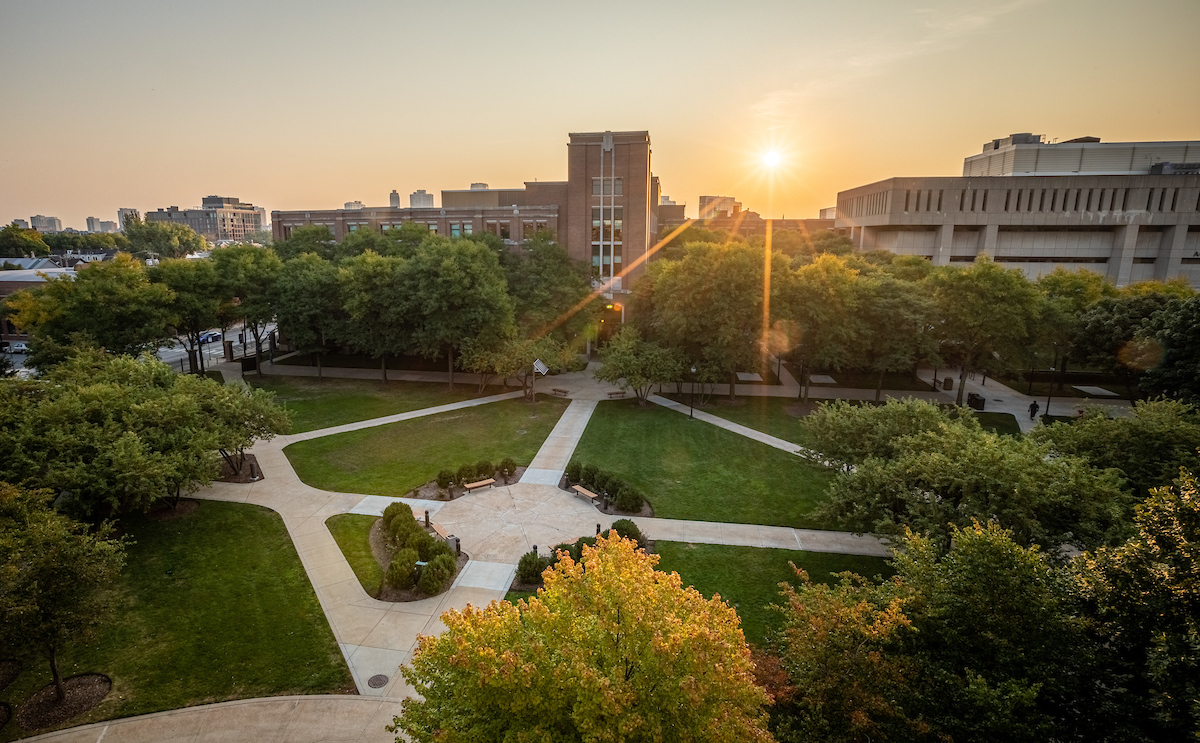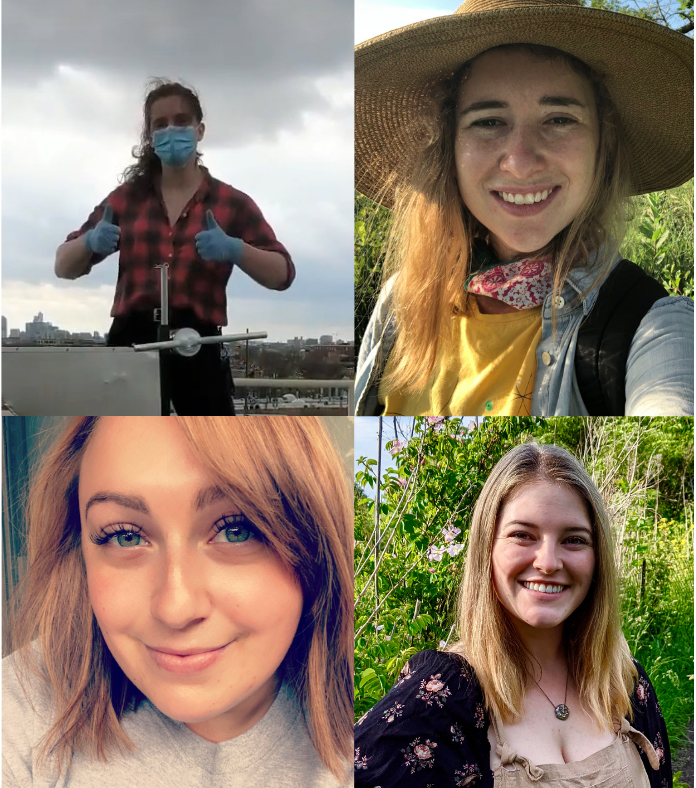 (DePaul University/Jeff Carrion)
(DePaul University/Jeff Carrion)
Universities offer students many resources to help achieve success, such as advising, tutoring services, and office hours. Some of these tools may never come to the attention of students, though, particularly those among underrepresented populations or who are the first in their family to attend college.
Addressing the challenge of this "hidden syllabus" are four graduate students in the Department of Environmental Science and Studies at DePaul. Deirdre McGovern, Hanna Petroski, Libby Shafer and Stephanie Teresi have been awarded funding from the Vincentian Endowment Fund and the Diversity and Inclusion Initiative Grant to launch two peer mentoring programs this fall for both undergraduates and graduates.
Their undergraduate program will offer every incoming freshman in ENV the opportunity to pair with an upperclassman who will provide one-on-one guidance in navigating their academic career. The program will also offer networking opportunities, guest speakers from various fields, and environmental education days centered on social and environmental justice.
 Clockwise from upper left: Hanna Petroski, Libby Shafer, Deirdre McGovern and Stephanie Teresi.
Clockwise from upper left: Hanna Petroski, Libby Shafer, Deirdre McGovern and Stephanie Teresi.
McGovern says peer mentoring played a key academic role for her. "It was incredibly valuable to have access to a graduate student who modeled a potential career path and who provided real-life examples of opportunities and challenges they experienced," she says. "The experience really informed what careers I was, and really wasn't, interested in."
Christie Klimas and Bala Chaudhary, associate and assistant professors in ENV at DePaul, respectively, sparked inspiration for the peer mentor programs as faculty leaders of the Diversity, Equity and Inclusion Committee.
"In 2019, Professors Klimas and Chaudhary hosted listening sessions with ENV students to learn about their experiences with diversity and inclusion on campus, in order to shape programming that holistically supports students," Shafer explains.
According to Petroski, a common theme of the listening sessions was minority students—particularly Black and Latinx students—felt isolated. Peer mentoring programs can often help address this.
"All of us, professors and graduate students, are hoping that this program will provide students with an opportunity to discuss and engage with environmental topics that are personally meaningful to them," Petroski says.
Klimas hopes to see students in the program feel more connected to their community.
"After over a year of online classes and virtual communications with their peers, we want to increase students' sense of belonging and involvement in the ENV community at DePaul," she says.
Plus, Chaudhary adds, peer mentoring programs help students become familiar with what typically goes untaught in the classroom — for example, "where to find scholarships, how to get connected with paid internships, or why and how to apply for graduate school."
Although the focus in peer mentoring is largely on helping the mentees advance, mentors also learn a lot through the program.
Of her own experience as a mentor in other programs, Teresi says, "Not only did I feel I successfully helped others succeed academically, but it also helped me grow and develop leadership skills I wasn't aware of before. That's the beautiful part of a mentorship program: Both the mentor and mentee grow together."
The ENV department is eager to start the peer mentoring program in the fall. It is also interested in collaborating with other mentoring programs at DePaul.
"It is incredibly beneficial and necessary to draw on insights from existing peer mentorship programs from other departments to thoughtfully design a program that genuinely supports students of various backgrounds and identities," Shafer says.
Petroski adds, "Every mentor and mentee will have their unique needs, so the more perspectives we can involve from the outset, the better we can try to plan to meet those needs."
The ENV peer mentoring program is unique, Chaudhary explains. "It positions students from historically underrepresented groups as mentors, elevating them as peer leaders and recognizing the specialized knowledge that minoritized students possess on how best to create inclusive learning environments," she says.
Students and professors in ENV alike are ensuring that every student feels like they are a part of the community and anyone can have easy access to opportunities that help them grow and succeed.